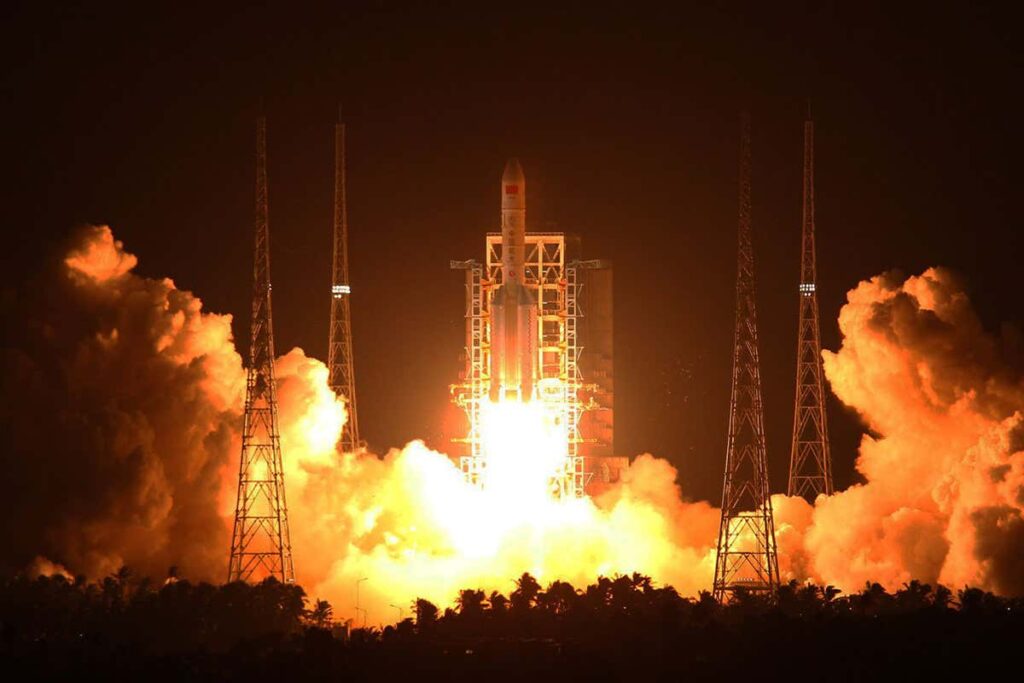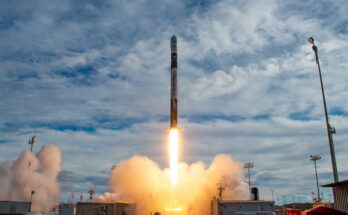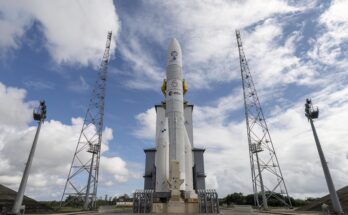
Between the CZ-5B and CZ-6A (Long March 5B and Long March 6A respectively), China has been in the news for less-than-desirable reasons. The latest, space debris from a CZ-6A upper stage, has highlighted the difficulties of Space and the need for its responsible use.
In general terms, for a large percentage of launch vehicles, the first stages of rockets end up in the ocean somewhere out of harm’s way, upper stages usually orbit their payloads, perform a deorbit burn and burn up in the atmosphere. Lately, China has been having issues with namely the first stage of the CZ-5B and the upper stage of the CZ-6A.
The issue with the CZ-5B’s first stage is uncontrolled descent. In 2020, the rocket body of a CZ-5B landed near a village in Côte d’Ivoire. SpaceNews reports, a second CZ-5B resulted in “A section of airspace over northern Spain was closed early Friday based on a bulletin issued by the European Aviation Safety Agency (EASA) Nov. 3 based on predictions from the EU Space Surveillance and Tracking (EUSST). France also closed airspace south of Corsica from 9:30 to 10:30 a.m. local time.
The stage landed without issue in the Pacific Ocean and admittedly not an orbital debris matter but perhaps a ticking time bomb. These stages have not caused significant damage or loss of life but it does seem an avoidable risk.
The CZ-6A’s upper stage has an issue that is not well-defined but prevalent, nonetheless. The upper stage broke up in orbit after releasing the Yunhai 3 environmental monitoring satellite. This event resulted in approximately 50 pieces of space debris. This event was to repeat itself on August 7 of this year.
There have been times when every spacefaring nation has made poor choices regarding Space. As technology develops with better understandings of the Cosmos and even Earth, Space must be viewed as a tool for furthering humankind. The CZ-6A upper-stage issue will hopefully be resolved soon, adding to the ever-growing debris in Space benefits none. Avoidable risks, such as the CZ-5B first-stage descent, should also be mitigated moving forward. Similar to how civilian air traffic flows, Space must be put in the same regard.
Carter Palmer has long held a keen interest in military matters and aviation. As a FI's space systems analyst he is responsible for updating the reports and analyses within the Space Systems Forecast – Launch Vehicles & Manned Platforms and Space Systems Forecast – Satellites & Spacecraft products.




